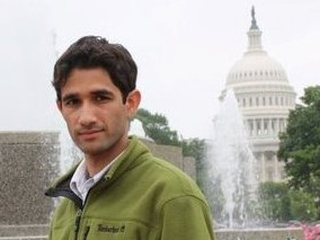Sadegh Foghani
(Residential Fellow, 2018-19)

Sadegh Foghani
Residential Fellow
Engineering the Revolution: American Pragmatism, French Thermodynamics, and the Formation of Religious and Political Thoughts in 20th-Century Iran
Sadegh Foghani is a historian specializing in history of science and technology. He obtained his PhD in History from the University of South Carolina and his BSc degree in Mechanical Engineering from the University of Tehran. His dissertation, Ayatollahs and Embryos: Science, Politics, and Religion in Post-Revolutionary Iran, explores the development of reproductive biomedicine, stem cell, and animal biotechnology since the early 1990s in Iran.
When he was conducting his dissertation research, he found many revealing stories involving Iranian STEM workers who live(d) outside Iran. These stories encouraged him to study the diasporic community of Iranian STEM professionals. The award of a travel fellowship by the University of South Carolina allowed him to go (in the spring of 2016) to Paris and Nantes, France to investigate the life and career of Mehdi Bazargan, who was awarded a governmental scholarship to continue his education at École Centrale des Arts et Manufactures in Paris in 1928, and who later became the first prime minister of post-revolutionary Iran.
His research investigates the role that Bazargan’s engineering background, French education, and American Pragmatism played in the formation of his religious and political thought. Through an examination of Bazargan’s writings, his trial defense, his letters and memoirs, his French engineering curriculum at Nantes and Paris, his research suggests that Bazargan—after spending seven years in France studying engineering—returned home not only with a doctorate in thermodynamics, but also with a pragmatic philosophical and political vision that proved influential in shaping his political career as well as of his interpretation of Islam.
At Linda Hall Library, he intends to explore the relationship between American Pragmatism and the development of religio-political thought of Mehdi Bazargan. His major activity is to use the Charles S. Peirce Papers which contain his papers, including notebooks and correspondence.
